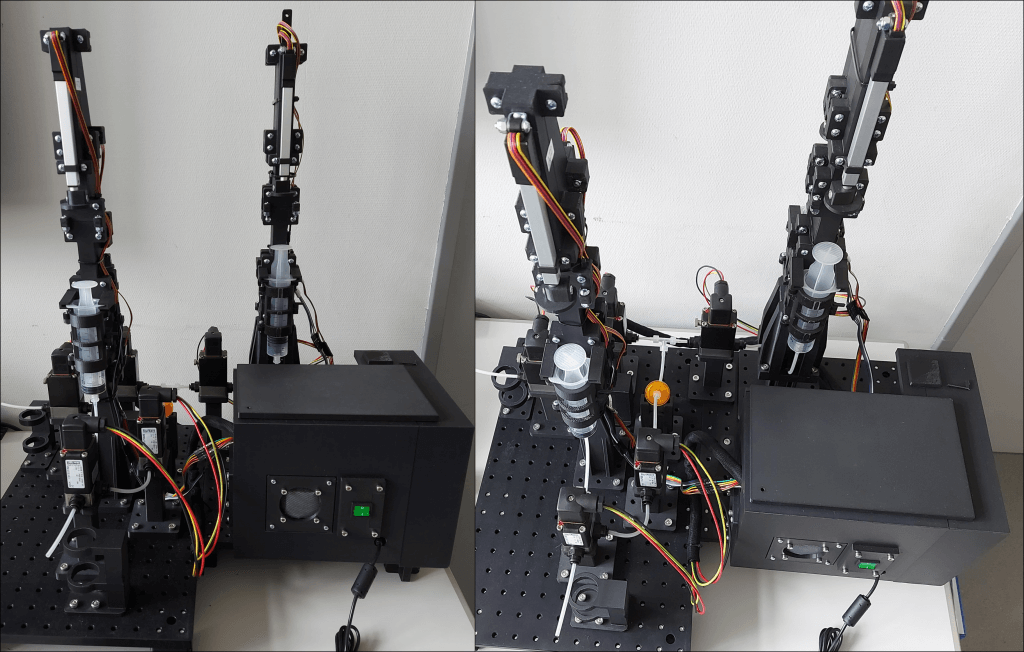
Research group develops new approaches for faster resistance testing in infectious diseases.
Infectious diseases are among the most common causes of death worldwide. Every minute counts, especially for septic and critically ill patients: only with fast and reliable diagnostics can doctors initiate the right treatment and save lives.
The InfectoXPlore project therefore focused on developing a rapid phenotypic resistance test. While common systems such as MALDI-TOF or PCR methods can often identify pathogens quickly, they provide only limited information about antibiotic resistance. Until now, targeted therapy has required waiting for time-consuming phenotypic tests – a critical gap in care.
The goal of InfectoXPlore was to research a spectroscopic diagnostic platform that can detect resistance cost-effectively, reliably, and within a few hours. The EAH Jena took on the task of researching an optimized system: from the optical and mechanical design to the device control.
Florian Hartz developed an automated syringe filter module for this purpose, which allows the autonomous control of four linear motors for precise dosing – an important building block for further system development.

Unfortunately, the end of the project also marked the end of his work at EAH Jena. We would like to thank Florian Hartz for his commitment, his intelligent ideas, and his consistently appreciative cooperation—and wish him all the best for the future!

